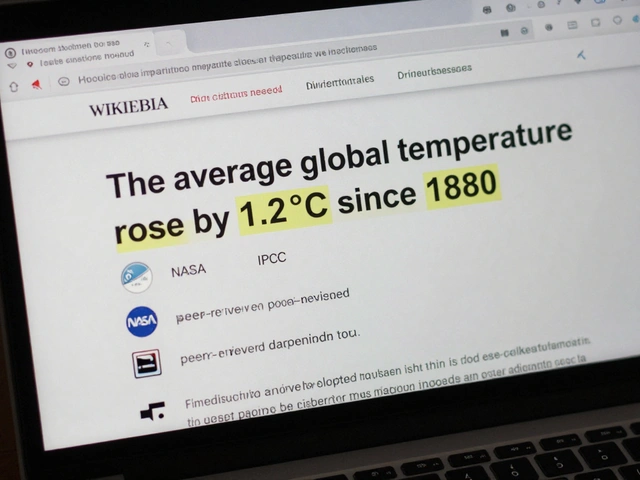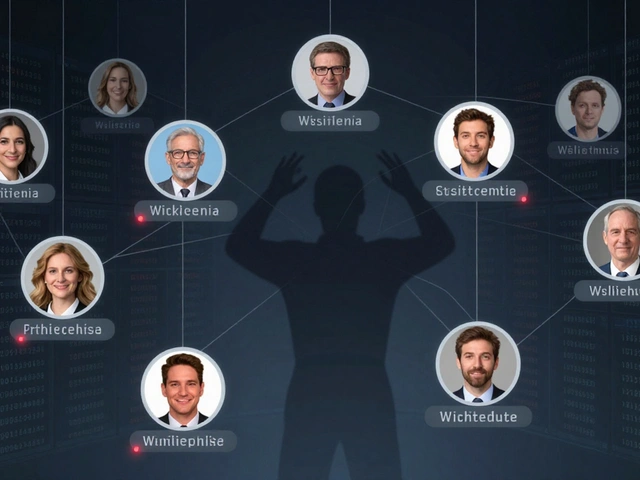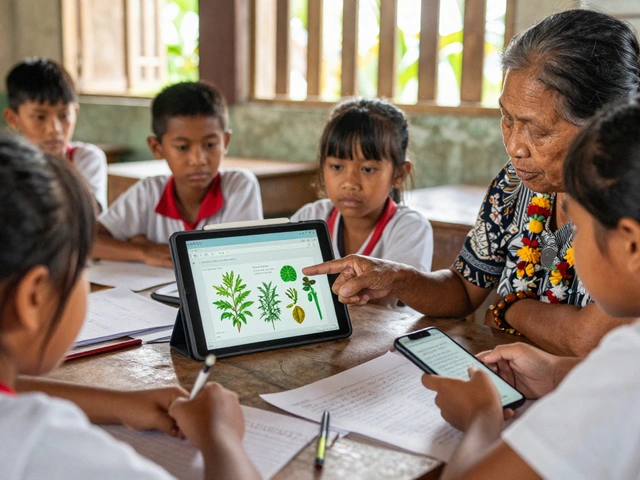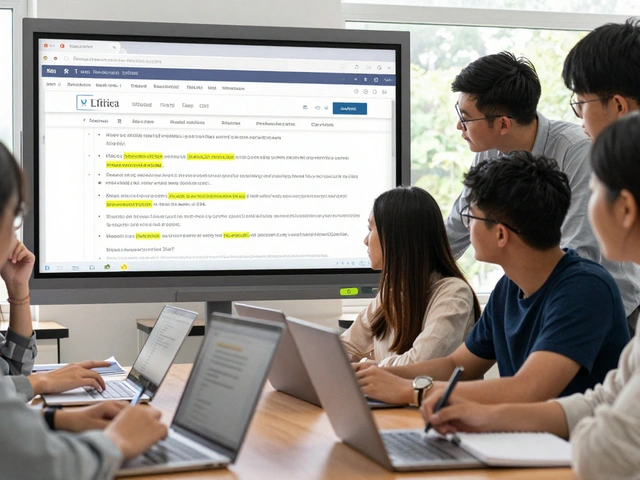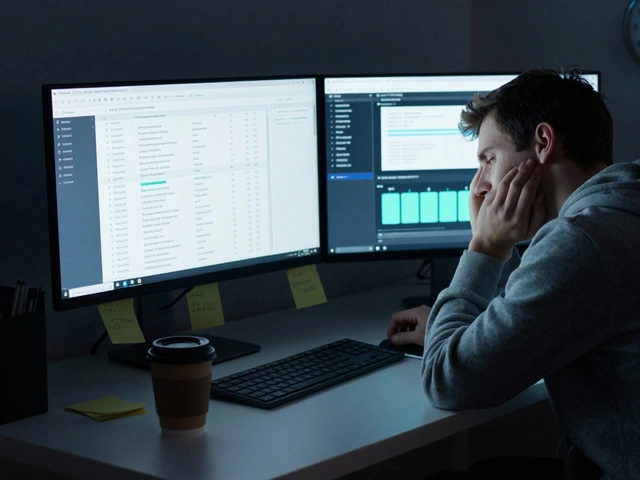What Happened at WikiConference North America 2025
This year’s WikiConference North America brought together over 400 volunteers, developers, librarians, and educators from across the U.S. and Canada. Held in Madison, Wisconsin, the event wasn’t just another gathering-it was a reset button for the Wikimedia movement in North America. After years of declining participation and shifting digital habits, the conference showed clear signs of renewal. The energy wasn’t in flashy keynotes or corporate sponsors. It was in the quiet conversations between a high school teacher from rural Ohio and a Wikipedia editor in Montreal who’d just fixed 12,000 broken links in Canadian history articles.
Why This Conference Mattered More Than Ever
Wikipedia isn’t just a website. It’s the most visited reference source in the world, used by students, journalists, and curious minds every day. But behind every article is a human-someone who stayed up past midnight to cite a peer-reviewed study, or who fought off vandalism from bots pretending to be real users. The real story of WikiConference isn’t about page views. It’s about who shows up to keep it alive.
This year, attendance was up 27% from 2023. Not because of paid ads. Not because of a viral tweet. But because local chapters finally started listening. They hosted workshops in Spanish and Indigenous languages. They partnered with community colleges to train students as editors. And for the first time, they invited people who had never edited Wikipedia before-and made them feel welcome.
Key Takeaway: The New Editors Are Not Who You Think
The stereotype of a Wikipedia editor is a lone tech guy in a basement. That’s outdated. In 2025, the fastest-growing group of new editors are women over 50, especially in rural areas. A survey conducted at the conference showed that 41% of new contributors in the past year were women aged 45-65. Many came in after noticing errors in articles about local history, healthcare access, or women’s achievements.
One attendee, Maria Lopez from Tucson, shared how she started editing after her granddaughter asked why there wasn’t a page about her grandmother’s work as a farm labor organizer in the 1970s. Maria spent three weeks gathering oral histories, newspaper clippings, and photos. Her article now has over 15,000 views a month. That’s the kind of impact that doesn’t show up in analytics dashboards-but it changes lives.
Technology Shifts: AI Isn’t the Enemy, It’s the Tool
There was a lot of talk about AI. Not the fear kind. The practical kind. Several teams demonstrated tools that help editors spot misinformation faster. One tool, called VeriEdita browser extension that cross-checks Wikipedia edits against trusted academic databases and government sources, flagged 8,000 potentially false claims in just three months. It didn’t replace editors. It gave them superpowers.
Another project, WikiLingoan AI-assisted translation tool designed specifically for low-resource languages spoken in Indigenous communities, helped translate 300 high-priority articles into Ojibwe, Cree, and Navajo. These aren’t just translations-they’re acts of cultural preservation. The tools are built by volunteers, not corporations. And they’re open source.
Challenges Still Standing
Progress isn’t perfect. One big issue: retention. For every three new editors who sign up, two disappear after three months. Why? Too many rules. Too much jargon. Too many gatekeepers who respond to mistakes with cold, robotic warnings instead of guidance.
A new initiative called First Edit Buddya mentorship program pairing new editors with experienced volunteers for a 30-day onboarding period was launched at the conference. It’s simple: you sign up, you get a human mentor who texts you, answers your questions, and celebrates your first successful edit. Early results show a 62% increase in long-term retention compared to the old system.
What’s Next? The Road to 2026
The next big goal? Getting Wikipedia into public libraries in every U.S. state. Right now, only 38% of public libraries offer free Wikipedia editing workshops. That’s changing. The Wikimedia Foundation has pledged $2 million over two years to fund librarian training and materials. Libraries are the perfect place-quiet, trusted, and already serving people who need reliable information.
Also on the horizon: a new mobile app designed for offline editing. Many rural editors still don’t have consistent internet. The app lets you draft articles on your phone, then syncs them when you’re back online. It’s in beta now, tested in Alaska, Montana, and the Navajo Nation.
How You Can Get Involved
You don’t need to be a tech expert. You don’t need to write 10,000-word essays. You just need to care enough to fix one thing.
- Find a Wikipedia article about your town, school, or local landmark. Is it missing photos? Add one.
- Is there a typo in a biography of a local hero? Fix it.
- See a claim that says “studies show” but doesn’t link to a source? Add one.
That’s it. That’s how change starts.
Resources to Start Editing Today
- Wikipedia:Teahousea friendly, no-judgment space for new editors to ask questions
- Wiki Education Dashboarda free platform that helps educators assign Wikipedia editing as class projects
- GLAM-Wikia program connecting museums, archives, and libraries with Wikipedia editors to share public domain content
Frequently Asked Questions
Do I need to be an expert to edit Wikipedia?
No. Wikipedia doesn’t require expertise-it requires reliable sources. If you can find a credible article, book, or official report that backs up a fact, you can add it. Many of the best edits come from people who aren’t academics but know their own communities best.
Is Wikipedia still trustworthy?
Yes, but only if people keep making it that way. Studies from Stanford and the University of Oxford show Wikipedia is as accurate as Encyclopaedia Britannica for most general topics-and faster to update. The difference? Wikipedia has over 100,000 active editors checking changes every day. It’s not perfect, but it’s the most transparent reference system ever created.
Can I edit Wikipedia from my phone?
Absolutely. The Wikipedia app lets you make edits on iOS and Android. You can fix typos, add citations, or upload photos. The new offline editing app launching in early 2026 will make it even easier for people without strong internet.
Why are so many articles about men and Western countries?
Because for decades, the majority of editors were men from North America and Europe. That’s changing. Programs like WikiWomen’s History Month and Indigenous Knowledge Initiatives are bringing in new voices. In 2024, articles about women in STEM grew by 43%. Articles on African history grew by 58%. The gap is narrowing-but it’s still there.
What’s the biggest mistake new editors make?
Trying to write a perfect article on their first try. Wikipedia isn’t a personal blog. It’s a collaborative encyclopedia. Start small. Fix one sentence. Add one source. That’s enough. The rest will follow.
